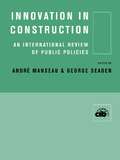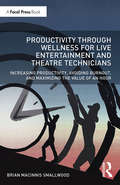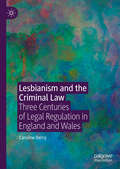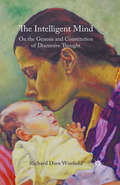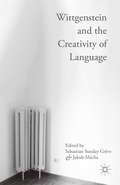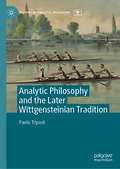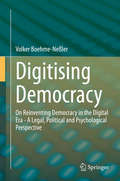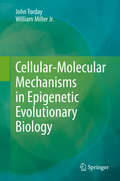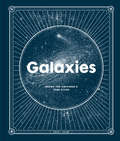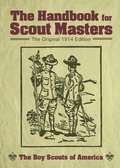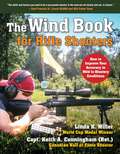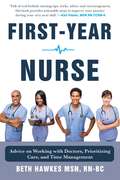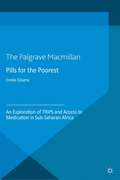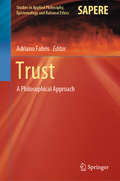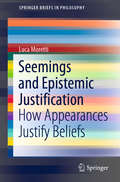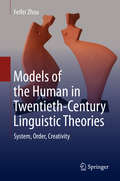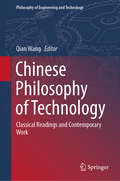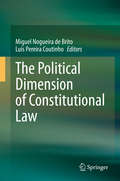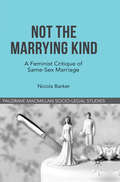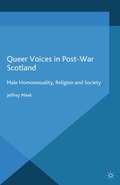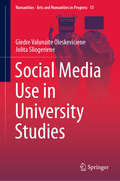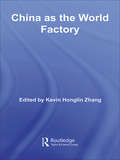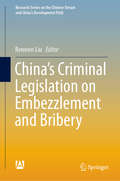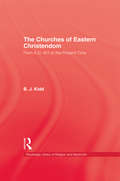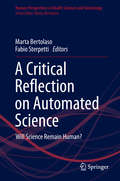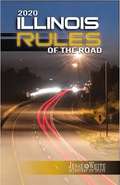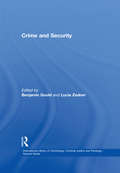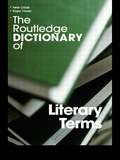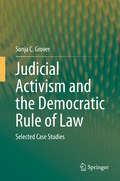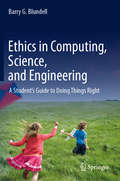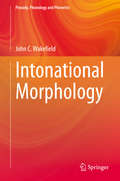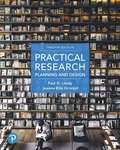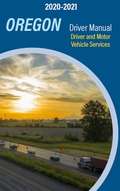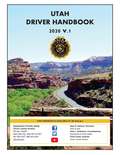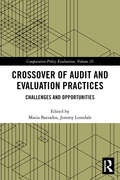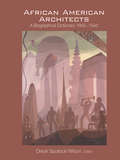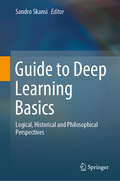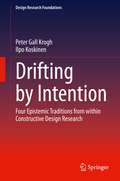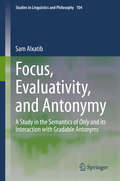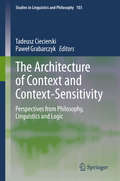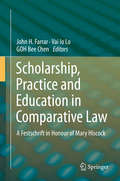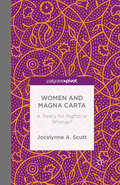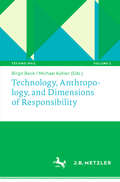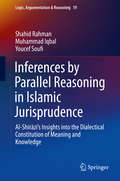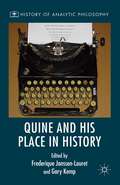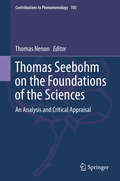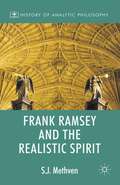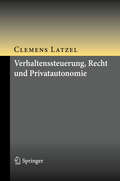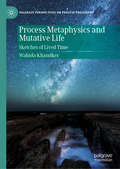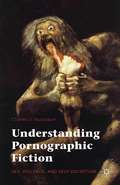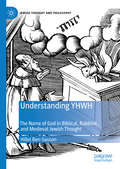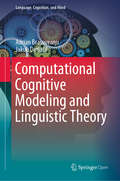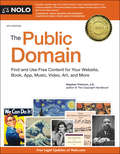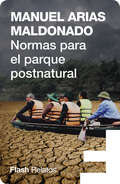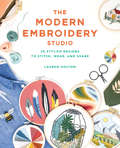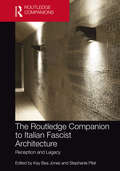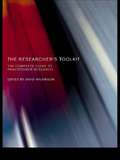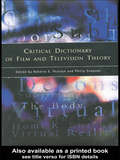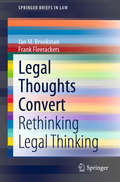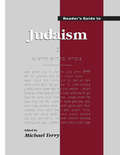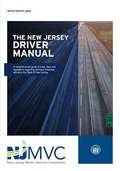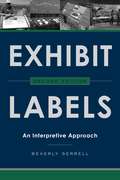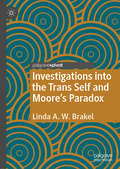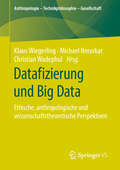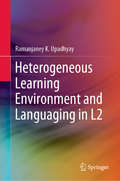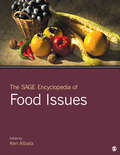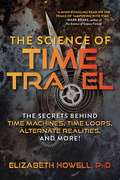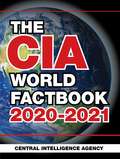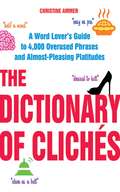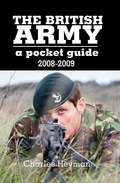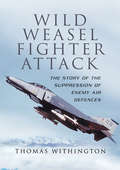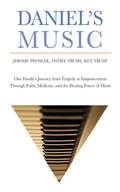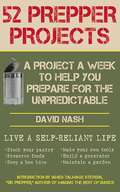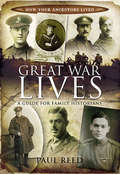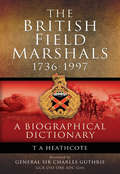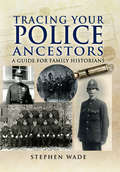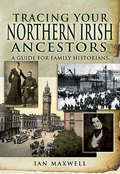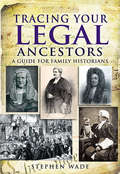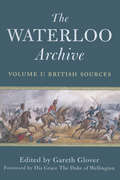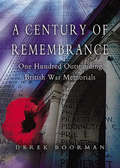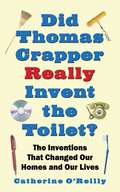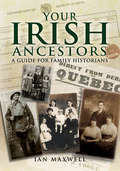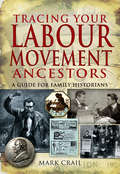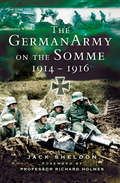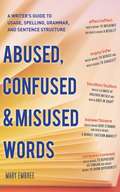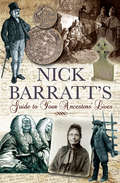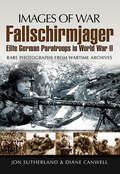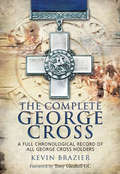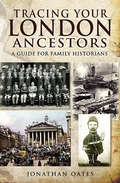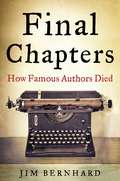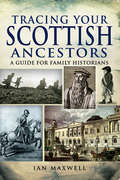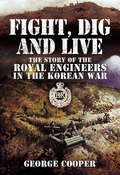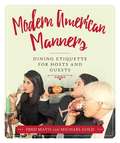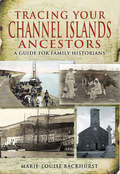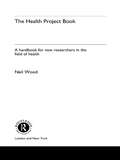Innovation in Construction: An International Review of Public Policies
by André Manseau George SeadenHow can innovation in the construction industry be strengthened? What instruments and approaches are being used by governments to promote it? What works and under what circumstances? These key questions have profound implications. This book presents a framework for the analysis of innovation models and systems in construction and an international comparison of these systems, with a focus on their application in practical policy development.
Productivity Through Wellness for Live Entertainment and Theatre Technicians: Increasing Productivity, Avoiding Burnout, and Maximizing the Value of An Hour
by Brian MacInnis SmallwoodProductivity Through Wellness for Live Entertainment and Theatre Technicians provides the tools for individuals and organizations to achieve a healthy work–life balance and increase productivity in the production process of live entertainment. Through examination of the limits of the human body, the fundamentals of motivation, and best practices of project management, the reader will develop operational mindfulness and look at new ways to achieve work–life balance. The book explores case studies that show how organizations are promoting work–life balance and reaping the benefits of increased productivity, makes recommendations to reduce burnout and increase productivity among technicians, and discusses how to deal with the various phases of production. An excellent resource for live entertainment technicians, production managers, technical directors, arts managers, managers in live entertainment, and students in Technical Direction and Production Management courses, Productivity Through Wellness for Live Entertainment and Theatre Technicians offers practical solutions to improve the quality of life of employees, reduce the burnout and injuries of overwork, and maximize the value of an hour.
Lesbianism and the Criminal Law: Three Centuries of Legal Regulation in England and Wales
by Caroline DerryThis book offers a comprehensive examination of the ways in which the criminal justice system of England and Wales has regulated, and failed or refused to regulate, lesbianism. It identifies the overarching approach as one of silencing: lesbianism has not only been ignored or regarded as unimaginable, but was deliberately excluded from legal discourses. A series of case studies ranging from 1746 to 2013 from parliamentary debates to individual prosecutions shed light on the complex process of regulation through silencing. They illuminate its evolution over three centuries and explore when and why it has been breached. The answers Derry uncovers can be fully understood only in the context of surrounding social and legal developments which are also considered. Lesbianism and the Criminal Law makes an important contribution to the growing bodies of literature on feminism, sexuality and the law and the legal history of sexual offences.
The Intelligent Mind: On the Genesis and Constitution of Discursive Thought
by Richard Dien WinfieldThe Intelligent Mind conceives the psychological reality of thought and language, explaining how intelligence develops from intuition to representation and then to linguistic interaction and thinking. Overcoming the prevailing dogmas regarding how discursive reason emerges, this book secures the psychological possibility of the philosophy of mind.
Wittgenstein and the Creativity of Language
by Sebastian Sunday Grève Jakub MáchaThis volume is the first to focus on a particular complex of questions that have troubled Wittgenstein scholarship since its very beginnings. The authors re-examine Wittgenstein’s fundamental insights into the workings of human linguistic behaviour, its creative extensions and its philosophical capabilities, as well as his creative use of language. It offers insight into a variety of topics including painting, politics, literature, poetry, literary theory, mathematics, philosophy of language, aesthetics and philosophical methodology.
Analytic Philosophy and the Later Wittgensteinian Tradition (History of Analytic Philosophy)
by Paolo TripodiThis book aims to explain the decline of the later Wittgensteinian tradition in analytic philosophy during the second half of the twentieth century. Throughout the 1950s, Oxford was the center of analytic philosophy and Wittgenstein – the later Wittgenstein – the most influential contemporary thinker within that philosophical tradition. Wittgenstein's methods and ideas were widely accepted, with everything seeming to point to the Wittgensteinian paradigm having a similar impact on the philosophical scenes of all English speaking countries. However, this was not to be the case. By the 1980s, albeit still important, Wittgenstein was considered as a somewhat marginal thinker. What occurred within the history of analytic philosophy to produce such a decline? This book expertly traces the early reception of Wittgenstein in the United States, the shift in the humanities to a tradition rooted in the natural sciences, and the economic crisis of the mid-1970s, to reveal the factors that contributed to the eventual hostility towards the later Wittgensteinian tradition.
Digitising Democracy: On Reinventing Democracy in the Digital Era - A Legal, Political and Psychological Perspective
by Volker Boehme-NeßlerThis book argues that in the digital era, a reinvention of democracy is urgently necessary. It discusses the mounting evidence showing that digitalisation is pushing classical parliamentary democracy to its limits, offering examples such as how living in a filter bubble and debating with political bots is profoundly changing democratic communication, making it more emotional, hysterical even, and less rational. It also explores how classical democracy involves long, slow thinking and decision processes, which don’t fit to the ever-increasing speed of the digital world, and examines the technical developments some fear will lead to governance by algorithms.In the digitalised world, democracy no longer functions as it has in the past. This does not mean waving goodbye to democracy – instead we need to reinvent it. How this could work is the central theme of this book.
Cellular-Molecular Mechanisms in Epigenetic Evolutionary Biology
by John Torday William Miller Jr.There has been no mechanistic explanation for evolutionary change consistent with phylogeny in the 150 years since the publication of ‘Origins’. As a result, progress in the field of evolutionary biology has stagnated, relying on descriptive observations and genetic associations rather testable scientific measures. This book illuminates the need for a larger evolutionary-based platform for biology. Like physics and chemistry, biology needs a central theory in order to frame the questions that arise, the way hypotheses are tested, and how to interpret the data in the context of a continuum.The reduction of biology to its self-referential, self-organized properties provides the opportunity to recognize the continuum from the Singularity/Big Bang to Consciousness based on cell-cell communication for homeostasis.
Galaxies: Inside the Universe's Star Cities (Astronomy Library #Vol. 4)
by David J. EicherTour the incredible scope of the cosmos as we know it with the editor in chief of Astronomy, featuring jaw-dropping illustrations and full-color photography from the magazine&’s archives, much of it never before published. &“The natural history of the galaxies is majestic and deserves its own David Attenborough. In David Eicher, it may have just found him.&”—Richard Dawkins Journey to the edges of our galaxy and beyond with one of the most widely recognized astronomy experts as your guide. Delve into the history of stargazing and space observation, learn how black holes power galaxies, and understand the classification of the different galaxy types. This illuminating book—with artful illustrations and never-before-seen space photography—will open your mind to the wonders of the universe that await.
The Handbook for Scout Masters: The Original 1914 Edition
by The Boy Scouts of AmericaNow Available Again, the Original 1914 Rules, Regulations, and Lessons Necessary for Boy Scout Leaders First published in 1914, the Handbook for Scout Masters was the foremost compendium on leading and guiding a Boy Scout troop. Here, word for word, you can read all about just what it took to be a Scout Master, with a focus on the boys themselves. After all, the Boy Scouts&’ main purpose was &“not to exploit methods, not glorify movements . . . but to lead boys into useful lives&” (from the Introduction). Chapters from this classic, standard handbook include: Scout RequirementsPrinciples and MethodsTroop and Patrol ManagementDrills and DemonstrationsChivalry and MoralityAnd more! From age limits, hierarchies, and oaths to lessons on cooking, first aid, and nature, The Handbook for Scout Masters covers all the basics of what it took to lead a Boy Scout troop. Scouts and scout masters alike will love reading about the original guidelines to one of America&’s most well-known youth organizations.
The Wind Book for Rifle Shooters: How to Improve Your Accuracy in Mild to Blustery Conditions
by Linda K. Miller Keith A. CunninghamAll other factors being equal, it is your ability to read the wind that will make the most difference in your shooting accuracy. The better you understand the behavior of the wind, the better you will understand the behavior of your bullet. Now, champion shooters Linda K. Miller and Keith A. Cunningham reveal everything they wish they&’d known about reading the wind before they started shooting (instead of having to learn as they went along) in concise, easy-to-read terms and accompanied with handy ninety-five diagrams. The Wind Book for Rifle Shooters contains straightforward guidance on the simple thought process they use to read the wind, the techniques and tactics they use to win matches, and the underlying skills that support both. Let these champions show you how to put together a simple wind-reading toolbox for calculating wind speed, direction, deflection, and drift. Then learn how to use these tools to read flags and mirage, record and interpret your observations, and time your shots to compensate for wind. Other topics covered include: Analyzing shot placementRecording and record keepingConfidence and following your hunchesAnd much more!The essential wind-reading basics taught in this book will absolutely improve your shooting skills, whether you're a target shooter, a plinker, a hunter or a shooting professional.
First-Year Nurse: Advice on Working with Doctors, Prioritizing Care, and Time Management
by Beth HawkesAn Indispensable Guide for First-Time Nurses on Working with Doctors, the Joys of the Night Shift, and Facing Mistakes! You've completed the necessary education, passed the exams, and you're finally ready for your first year as a professional nurse. But there is still trepidation, accompanied by many unanswered questions. A true first year of nursing 101 guide, this book covers topics like managing feedback, working with doctors, working night shift, and recovering from a mistake. Writer and nursing professional Beth Hawkes draws from her own experiences to offer expert tips for first-timers venturing into this important discipline. Writing in a manner that's digestible and including illustrative anecdotes along the way, Hawkes will put readers at ease with her clear advice and directives—many of which can be applied in professional settings outside of nursing. She offers rookie nurses sample questions to help guide them on how they should be communicating with preceptors and colleagues, from morning to night. The perfect gift for nurses just entering the field!
Pills for the Poorest: An Exploration of TRIPS and Access to Medication in Sub-Saharan Africa (Palgrave Socio-Legal Studies)
by E. CloatreThe desperate need for a vast part of the global population to access better medicines in more certain ways is one of the biggest concerns of the modern era. Pills for the Poorest offers a new perspective on the much-debated issue of the links between intellectual property and access to medication. Using ethnographic case studies in Djibouti and Ghana, and insights from actor-network theory, it explores the ways in which TRIPs and pharmaceutical patents are translated in the daily practices of those who purchase, distribute, and use (or fail to use) medicines in sub-Saharan Africa. It suggests that focusing on routine practices and the material deployment of intellectual property significantly enriches our understanding of the complex dynamics that animate the field of access to medicines and helps relocate the role of law within those processes. It demonstrates how intellectual property affects access to medicines in ways that are often discreet, indirect and forgotten. By exploring these complex mechanisms, it seeks to ask questions about the modes of actions of pharmaceutical patents, but also, more generally, about the complexity of legal objects.
Trust: A Philosophical Approach (Studies in Applied Philosophy, Epistemology and Rational Ethics #54)
by Adriano FabrisThis book presents cutting-edge concepts on the question of trust. Written by leading experts, it investigates a paradoxical feature of contemporary society: while information and communication technologies, on the one hand, and scientific discourses, on the other, can promote more informed participation in public and democratic life, they have also led to a dramatic decline in our communicative and cooperative skills. The book analyzes the notion of trust from an interdisciplinary perspective by combining the normative (continental) and empirical (Anglo-American) approaches and by considering the political, epistemological, and historical transformations in the interpersonal relationships sparked by new technologies. Using trust as a model, it then investigates and clarifies the new types of participation that are made possible by scientific and technological advances.
Seemings and Epistemic Justification: How Appearances Justify Beliefs (SpringerBriefs in Philosophy)
by Luca MorettiThis book examines phenomenal conservatism, one of the most influential and promising internalist conceptions of non-inferential justification debated in current epistemology and philosophy of mind. It also explores the significance of the findings of this examination for the general debate on epistemic justification. According to phenomenal conservatism, non-inferential justification rests on seemings or appearances, conceived of as experiences provided with propositional content. Phenomenal conservatism states that if it appears to S that P, in the absence of defeaters, S thereby has some justification for believing that P. This view provides the basis for foundationalism and many ordinary epistemic practices.This book sheds new light on phenomenal conservatism by assessing objections to it and examining epistemological merits and advantages attributed to it. In a nutshell, phenomenal conservatism is actually compatible with Bayesian reasoning, and it is unaffected by bootstrapping problems and challenges that appeal to the cognitive penetrability of perception. Nevertheless, appearance-based justification proves unstable or elusive and its anti-septical bite is more limited than expected. These difficulties could be surmounted if phenomenal conservatism were integrated with a theory of inferential justification. The book appeals to scholars and postgraduates in the field of epistemology and philosophy of mind who are interested in the rational roles of appearances.
Models of the Human in Twentieth-Century Linguistic Theories: System, Order, Creativity
by Feifei ZhouThis book provides a refreshingly new perspective for investigating linguistic texts, which foregrounds models of the human. It presents a close reading of major linguistic theories in the twentieth century with a focus on three main themes: linguistic system and the individual speaker; social order; and linguistic creativity. The examination of these three fundamental themes concerning language and human nature, on the one hand, provides a fine-textured exposition on the implicit and explicit models of human nature endorsed by major theorists; on the other, it reveals the methodological dilemmas faced by linguistics. In light of the fact that the importance of considering posthumanist ideas is increasingly being underscored today, both within and outside linguistics, this focus on the human makes the book highly topical.
Chinese Philosophy of Technology: Classical Readings and Contemporary Work (Philosophy of Engineering and Technology #34)
by Qian WangThis book gathers essays that introduce the ideological advances in the philosophy of engineering and technology in contemporary China. It particularly focuses on China’s distinctive concepts and methods, revealing different views and academic debates to offer readers a comprehensive overview of this important field.The contributors present unique perspectives based on practical problems and traditional philosophy, examining such issues and concepts as axiology and theories of process, the difference between engineering activities and technology activities, and the core of the relationship between “Dao” and “Technique.”Other essays cover the ethics of technology, practical wisdom (phronesis) and practical reasoning, as well as creative concepts and methods concerning the philosophical problems in high technology, architectural technology, and technological innovation. The authors also consider more general issues in the field.This book compiles the relevant research achievements of Chinese scholars in various time periods. Some authors have revised and translated into English papers published in Chinese, while others present their research in English specifically for this study. An annotated bibliography of the major publications in the field completes this collection.
The Political Dimension of Constitutional Law
by Luís Pereira Coutinho Miguel Nogueira de BritoThis book discusses in what sense constitutional law has a political dimension, raising the question whether constitutional law is fundamentally political as to its validity, terms of its origin, conceptual structure and/or corresponding practice. It also poses the question whether that dimension is a political-theological dimension. A positive answer to these questions challenges the prevailing view that constitutional law is to be conceived strictly as law, moreover as written law, approved at a certain point in history by a particular power and interpreted as any other law by the judiciary. The essays included in this book, written by leading scholars in constitutional theory – including Martin Loughlin, Paul Kahn, Manon Altwegg-Boussac and Massimo La Torre – address these questions in a timely and original way.
Not The Marrying Kind: A Feminist Critique of Same-Sex Marriage (Palgrave Socio-Legal Studies)
by N. BarkerNot the Marrying Kind is a new and comprehensive exploration of the contemporary same-sex marriage debates in several jurisdictions including Australia, Canada, South Africa, the United Kingdom and the United States. It departs from much of the existing scholarship on same-sex marriage, which argues either for or against marriage for same-sex couples. Instead, this book begins from a critical analysis of the institution of marriage itself (as well as separate forms of relationship recognition, such as civil partnership, PaCS, domestic partnership) and asks whether and how feminist critiques of marriage might be applied specifically to same-sex marriage. In doing this, the author combines the theories of second wave feminism with insights from contemporary queer theory.
Queer Voices in Post-War Scotland: Male Homosexuality, Religion and Society (Genders and Sexualities in History)
by J. MeekThis book examines the experiences of gay and bisexual men who lived in Scotland during an era when all homosexual acts were illegal, tracing the historical relationship between Scottish society, the state and its male homosexual population using a combination of oral history and extensive archival research.
Social Media Use in University Studies (Numanities - Arts and Humanities in Progress #13)
by Jolita Sliogeriene Giedre Valunaite OleskevicieneThis book highlights the phenomenon of social media use in university studies based on its participants’ lived experience. It will appeal both to academics and practitioners interested in the human factors in the study environments saturated with technologies of social media. This book reveals multiple, sometimes contradictory dimensions of the phenomenon. The contradictions acquire a binary Janus-faced characteristic of uncertainty and paradox. Social media use in university studies also causes changes in experiencing time, space and relations. Teacher research participants sometimes perceive their time as stress or an additional load, which shows that social media use in university studies demands a new approach to teacher workload and its regulation. There is also the necessity of the sensitive democratic teacher—student pedagogical relationship. This book proves that the pedagogical relationship and human creativity essentially belong to the human living world and are still at the heart of the technological “cyborgian” existence.
China as the World Factory (Routledge Studies in the Growth Economies of Asia)
by Kevin Honglin ZhangFew countries have integrated into the world economy as fast – or as dramatically – as China has since 1978. The world’s most populous country is emerging as a world workshop and export machine: a visit to a department store in any country will unearth a plethora of goods manufactured in the People’s Republic. China is now the world’s fourth largest exporting nation. In this important book, Kevin Zhang brings together an international team of contributors to analyze this development process. Taking a thematic approach, the book covers: * manufacturing exports and the world workshop* foreign capital and china’s industrial development* challenges from the WTO and openness. This topical analysis will be an excellent resource for postgraduate students and researchers in the fields of Asian and Chinese studies, export studies, and economics.
China’s Criminal Legislation on Embezzlement and Bribery (Research Series on the Chinese Dream and China’s Development Path)
by Renwen LiuThis book discusses in a Chinese context the criminal policy and legislation related to embezzlement and bribery, which are considered major problems of global significance in both theory and practice, and in so doing to demonstrate the progress made by the Chinese government over the last 30 years with regard to preventing these crimes. More specifically, it addresses a variety of issues, such as embezzlement and bribery legislation and its history in New China; the effects of legislation on judicial practice; criminological analysis of the causes of corruption crimes; related criminal statutes and their improvements; judicial interpretation, sentencing issues and prevention measures; the design and improvement of related criminal procedure; comparative studies on laws in relation to the punishment and prevention of corruption crimes; and international cooperation in the pursuit of corrupt officials. In a word, taking the relevant history and current reality, as well as domestic and international prevention mechanisms into account, the book discusses the legal framework, evaluates its implementation, reviews the merits and shortcomings of criminal legislation and judicial practice, and puts forward legislative and judicial proposals regarding prevention mechanisms. It offers a comprehensive but accessible (academic) reference work for legal researchers, students, lawyers and all others interested in the criminal legislation and policy with regard to corruption crimes in China.
Churches Of Eastern Christendom
by KiddFirst published in 2006. Routledge is an imprint of Taylor & Francis, an informa company.
A Critical Reflection on Automated Science: Will Science Remain Human? (Human Perspectives in Health Sciences and Technology #1)
by Marta Bertolaso Fabio SterpettiThis book provides a critical reflection on automated science and addresses the question whether the computational tools we developed in last decades are changing the way we humans do science. More concretely: Can machines replace scientists in crucial aspects of scientific practice? The contributors to this book re-think and refine some of the main concepts by which science is understood, drawing a fascinating picture of the developments we expect over the next decades of human-machine co-evolution. The volume covers examples from various fields and areas, such as molecular biology, climate modeling, clinical medicine, and artificial intelligence. The explosion of technological tools and drivers for scientific research calls for a renewed understanding of the human character of science. This book aims precisely to contribute to such a renewed understanding of science.
Massachusetts Driver's Manual
by Massachusetts Department of VehiclesThe manual is a helpful guide and a reminder that a driver’s license is a privilege, and with that comes the responsibilities of understanding and following the laws, and keeping you and other drivers safe on the road. Please read the rules of the road in order to prepare for your road test and a lifetime of safe driving, bicycling, and walking.
Crime and Security (International Library Of Criminology, Criminal Justice And Penology - Second Ser.)
by Benjamin Goold Lucia ZednerThe pursuit of security is now central to the development of public policy and a driving force behind the spread of private policing. Just as new theoretical frameworks are needed to deal with the increasing tendency of crime control policies to focus on risk reduction, new forms of governance are also required to deal with the rapid growth of the private security industry. This volume brings together a wide range of contributions from leading scholars in the field and includes international and comparative perspectives on the challenges posed by the rise of the 'security society'.
The Routledge Dictionary of Literary Terms (Routledge Dictionaries)
by Peter Childs Roger FowlerA twenty-first century version of Roger Fowler’s 1973 Dictionary of Modern Critical Terms, this latest edition of The Routledge Dictionary of Literary Terms is the most up-to-date guide to critical and theoretical concepts available to students of literature at all levels. With over forty newly commissioned entries, this essential reference book includes: an exhaustive range of entries, covering such topics as genre, form, cultural theory and literary technique new definitions of contemporary critical issues such as Cybercriticism and Globalization complete coverage of traditional and radical approaches to the study and production of literature thorough accounts of critical terminology and analyses of key academic debates full cross-referencing throughout and suggestions for further reading. Covering both long-established terminology as well as the specialist vocabulary of modern theoretical schools, The Routledge Dictionary of Literary Terms is an indispensable guide to the principal terms and concepts encountered in debates over literary studies in the twenty-first century.
Judicial Activism and the Democratic Rule of Law: Selected Case Studies
by Sonja C. GroverIn this book the author argues that judicial activism in respect of the protection of human rights and dignity and the right to due process is an essential element of the democratic rule of law in a constitutional democracy as opposed to being ‘judicial overreach’. Selected recent case law is explored from the US and Canadian Supreme Courts as well as the European Court of Human Rights illustrating that these Courts have, at times, engaged in judicial activism in the service of providing equal protection of the law and due process to the powerless but have, on other occasions, employed legalistic but insupportable strategies to sidestep that obligation.The book will be of interest to those with a deep concern regarding the factors that influence judicial decision-making and the judiciary's role through judgments in promoting and preserving the underpinnings of democracy. This includes legal researchers, the judiciary, practicing counsel and legal academics and law students as well as those in the area of democracy studies, in addition to scholars in the fields of sociology and philosophy of law.
Ethics in Computing, Science, and Engineering: A Student’s Guide to Doing Things Right
by Barry G. BlundellThis comprehensive textbook introduces students to the wide-ranging responsibilities of computing, science and engineering professionals by laying strong transdisciplinary foundations and by highlighting ethical issues that may arise during their careers. The work is well illustrated, and makes extensive use of both activities, and ethical dilemmas which are designed to stimulate reader engagement. A number of memorable case studies are also included and frequently draw on the demanding aerospace industry. The book adopts a strongly human centric approach, with matters such as privacy erosion and censorship being viewed not only in their current context but also in terms of their ongoing evolution. What are our individual ethical responsibilities for ensuring that we do not develop for future generations a technological leviathan with the potential to create a dystopian world? A broad range of technologies and techniques are introduced and are examined within an ethical framework. These include biometrics, surveillance systems (including facial recognition), radio frequency identification devices, drone technologies, the Internet of Things, and robotic systems. The application and potential societal ramifications of such systems are examined in some detail and this is intended to support the reader in gaining a clear insight into our current direction of travel. Importantly, the author asks whether we can afford to allow ongoing developments to be primarily driven by market forces, or whether a more cautious approach is needed. Further chapters examine the benefits that are associated with ethical leadership, environmental issues relating to the technology product lifecycle (from inception to e-waste), ethical considerations in research (including medical experimentation involving both humans and animals), and the need to develop educational programs which will better prepare students for the needs of a much more fluid employment landscape. The final chapter introduces a structured approach to ethical issue resolution, providing a valuable, long-term source of reference. In addition it emphasises the ethical responsibilities of the professional, and considers issues that can arise when we endeavour to effect ethically sound change within organisations. Examples are provided which highlight the possible ramifications of exercising ethical valour. The author has thus created an extensively referenced textbook that catalyses student interest, is internationally relevant, and which is multicultural in both its scope and outlook.
Intonational Morphology (Prosody, Phonology and Phonetics)
by John C. WakefieldThis book discusses the morphological properties of intonation, building on past research to support the long-recognized relationship between the functions and meanings of discourse particles and the functions and meanings of intonation. The morphological status of intonation has been debated for decades, and this book provides evidence from the literature combined with new and compelling empirical evidence to show that specific intonational forms correspond to specific segmental discourse particles. Based on the conclusion that intonation is in the lexicon, it proposes syntactic positions for intonational meanings using a cartographic approach. It also describes how intonation is represented in speakers' minds, which has important implications for first and second language acquisition as well as for theories and approaches to artificial speech recognition and production. This book is of interest to theoretical and applied linguists, as well as to anyone whose research and interests relate in any way to intonation.
Practical Research: Planning And Design
by Paul D. Leedy Jeanne Ellis Ormrod Laura Ruth JohnsonWritten in uncommonly engaging and elegant prose, this text is a "do-it-yourself, understand-it-yourself” manual designed to help research students in any discipline understand the fundamental structure of quality research and the methodical process that leads to genuinely significant results. It guides the reader, step-by-step, from the selection of a problem, through the process of conducting authentic research, to the preparation of a completed report, with practical suggestions based on a solid theoretical framework and sound pedagogy. Suited for the core text in any introductory research course or even for self-instruction, this text will show students two things: 1) that quality research demands planning and design; and, 2) how their own research projects can be executed effectively and professionally.
Crossover of Audit and Evaluation Practices: Challenges and Opportunities (Comparative Policy Evaluation)
by Maria Barrados Jeremy LonsdaleCrossover of Audit and Evaluation Practices brings together academic analysis with insights from practitioners to discuss the potential for collaboration in audit and evaluation practices between three professional disciplines. Clearly written and thoughtfully organized, this volume is structured in three parts to deal with theory, practice issues and how the practices have worked together. • Part One provides definitions of performance audit, internal audit and program evaluation. • Part Two addresses several challenges that professionals face in applying these standards and principles. • Part Three contains examples of organizational collaboration between the practices, how they have worked together and the lessons that were learned from that experience. Specific cases from the Government Accountability Office, and UNESCO, UNDP and Inter-Americas Development Bank illustrate what has worked or not and suggest reasons why. Crossover of Audit and Evaluation Practices offers even the most skilled and experienced professional insight on how to bridge some of the divides. It will help generate a better understanding of the activities and services that are either imposed on them or are freely available and help to stimulate their optimal use.
African American Architects: A Biographical Dictionary, 1865-1945
by Dreck Spurlock WilsonAfrican-American architects have been designing and building houses and public buildings since 1865. Although many of these structures survive today, the architects themselves are virtually unknown. This unique reference work brings their lives and work to light for the first time. Written by 100 experts ranging from architectural historians to archivists, this book contains 160 biographical, A-Z entries on African-American architects from the era of Emancipation to the end of World War II. Articles provide biographical facts about each architect, and commentary on his or her work. Practical and accessible, this reference is complemented by over 200 photographs and includes an appendix containing a list of buildings by geographic location and by architect.
Guide to Deep Learning Basics: Logical, Historical and Philosophical Perspectives
by Sandro SkansiThis stimulating text/reference presents a philosophical exploration of the conceptual foundations of deep learning, presenting enlightening perspectives that encompass such diverse disciplines as computer science, mathematics, logic, psychology, and cognitive science. The text also highlights select topics from the fascinating history of this exciting field, including the pioneering work of Rudolf Carnap, Warren McCulloch, Walter Pitts, Bulcsú László, and Geoffrey Hinton.Topics and features:Provides a brief history of mathematical logic, and discusses the critical role of philosophy, psychology, and neuroscience in the history of AIPresents a philosophical case for the use of fuzzy logic approaches in AIInvestigates the similarities and differences between the Word2vec word embedding algorithm, and the ideas of Wittgenstein and Firth on linguisticsExamines how developments in machine learning provide insights into the philosophical challenge of justifying inductive inferencesDebates, with reference to philosophical anthropology, whether an advanced general artificial intelligence might be considered as a living beingInvestigates the issue of computational complexity through deep-learning strategies for understanding AI-complete problems and developing strong AIExplores philosophical questions at the intersection of AI and transhumanismThis inspirational volume will rekindle a passion for deep learning in those already experienced in coding and studying this discipline, and provide a philosophical big-picture perspective for those new to the field.
Drifting by Intention: Four Epistemic Traditions from within Constructive Design Research (Design Research Foundations)
by Peter Gall Krogh Ilpo KoskinenConstructive design research, is an exploratory endeavor building exemplars, arguments, and evidence. In this monograph, it is shown how acts of designing builds relevance and articulates knowledge in combination. Using design acts to build new knowledge, invite reframing of questions and new perceptions to build up. Respecting the emergence of new knowledge in the process invite change of cause and action. The authors' term for this change is drifting; designers drift; and they drift intentionally, knowing what they do. The book details how drifting is a methodic practice of its own and provides examples of how and where it happens. This volume explores how to do it effectively, and how it depends on the concept of knowledge. The authors identify four epistemic traditions in constructive design research. By introducing a Knowledge/Relevance model they clarify how design experiments create knowledge and what kinds of challenges and contributions designers face when drifting. Along the lines of experimental design work the authors identify five main ways in which constructive experiments drift. Only one of them borrows its practices from experimental science, others build on precedents including arts and craft practices. As the book reveals, constructive design research builds on a rich body of research that finds its origins in some of the most important intellectual movements of 20th century. This background further expands constructive design research from a scientific model towards a more welcoming understanding of research and knowledge. This monograph provides novel actionable models for steering and navigating processes of constructive design research. It helps skill the design researcher in participating in the general language games of research and helps the design researcher build research relations beyond the discipline.
Focus, Evaluativity, and Antonymy: A Study in the Semantics of Only and its Interaction with Gradable Antonyms (Studies in Linguistics and Philosophy #104)
by Sam AlxatibThis book uncovers properties of focus association with 'only' by examining the interaction between the particle and bare (or “evaluative”) gradable terms. Its empirical building blocks are paradigms involving upward-scalar terms like 'few' and 'rarely', and their downward-scalar antonyms 'many' and 'frequently', an area that has not been studied previously in the literature. The empirical claim is that associations of the former type give rise to unexpected readings, and the proposed theoretical explanation draws on the properties of the latter type of association. In presenting the details, the book deconstructs the so-called scalar presupposition of 'only' and derives it from constraints against its vacuous use. This view is then combined with a semantics of the evaluative adjectives 'many' and 'few' to explain why the unavailable (but expected) meanings of the given constructions are unavailable. The attested (but unexpected) readings of 'only+few/rarely' associations are derived from independently motivated LFs in which the degree expressions are existentially closed. Finally, the book provides new findings, based on the core proposal, about 'only if' constructions, and about the interaction between 'only' and other upward-scalar modified numerals (comparatives, and 'at most'). The book thus provides new data and a new theoretical view of the semantic properties of 'only', and connects it to the semantics of gradable expressions.
The Architecture of Context and Context-Sensitivity: Perspectives from Philosophy, Linguistics and Logic (Studies in Linguistics and Philosophy #103)
by Paweł Grabarczyk Tadeusz CiecierskiThis volume addresses foundational issues of context-dependence and indexicality, which are at the center of the current debate within the philosophy of language. Topics include the scope of context-dependency, the nature of content and the character of input data of cognitive processes relevant for the interpretation of utterances. There's also coverage of the role of beliefs and intentions as contextual factors, as well as the validity of arguments in context-sensitive languages.The contributions consider foundational issues regarding context-sensitivity from three different, yet related, perspectives on the phenomenon of context-dependence: representational, structural, and functional. The contributors not only address the representational, structural and/or functional problems separately but also study their mutual connections, thus furthering the debate and bringing competing approaches closer to unification and consensus. This text appeals to students and researchers within the field.This is a very useful collection of essays devoted to the roles of context in the study of language. Its essays provide a useful overview of the current debates on this topic, and they put forth novel contributions that will undoubtedly be of relevance for the development of all areas in philosophy and linguistics interested in the notion of context. Stefano Predelli Department of Philosophy, University of Nottingham, Nottingham, UK
Scholarship, Practice and Education in Comparative Law: A Festschrift in Honour of Mary Hiscock
by John H. Farrar Vai Io Lo Bee Chen GohThis book examines how law functions in a multitude of facets and dimensions. The contributions shed light on the study of comparative law in legal scholarship, the relevance of comparative law in legal practice, and the importance of comparative law in legal education. The book will particularly appeal to those engaged in the teaching and scholarship of comparative law, and those seeking to uncover the various significant dimensions of the workings of law. The book is organised in three parts. Part I addresses scholarship, with contributors examining comparative legal issues as critique and from a theoretical framework. Part II outlines practice, with contributors discussing the function of comparative law in such comparatively diverse areas as international arbitration, environment, and the rule of law. Part III appraises comparative law in education.
Women and The Magna Carta: A Treaty for Control or Freedom?
by Jocelynne ScuttOn the eight-hundredth anniversary of the Magna Carta, Women and the Magna Carta investigates what the charter meant for women's rights and freedoms from an historical and legal perspective.
Technology, Anthropology, and Dimensions of Responsibility (Techno:Phil – Aktuelle Herausforderungen der Technikphilosophie #1)
by Michael Kühler Birgit Beck“With great power comes great responsibility.” In today’s world, with our growing technological power and the knowledge about its impact, we are considered to be responsible for many instances that not long ago would have been deemed a matter of fate. At the same time, the looming options of, e.g., genome editing or neuroprosthetics, threaten traditional notions of responsibility if no longer the person but the technology involved is deemed to be responsible for a specific behaviour. The growing ethical debate on the expansion of human responsibility, e.g. when it comes to human-machine-interaction, ambient intelligence, or reproductive technologies, thus intertwines with the challenge to formulate an appropriate understanding of the concept of personal responsibility and our respective anthropological self-understanding in today’s technological world. The volume brings together both perspectives and aims at illuminating crucial dimensions of responsibility in light of technological innovation and our self-understanding as responsible beings.
Inferences by Parallel Reasoning in Islamic Jurisprudence: Al-Shīrāzī’s Insights into the Dialectical Constitution of Meaning and Knowledge (Logic, Argumentation & Reasoning #19)
by Shahid Rahman Muhammad Iqbal Youcef SoufiThis monograph proposes a new (dialogical) way of studying the different forms of correlational inference, known in the Islamic jurisprudence as qiyās. According to the authors’ view, qiyās represents an innovative and sophisticated form of dialectical reasoning that not only provides new epistemological insights into legal argumentation in general (including legal reasoning in Common and Civil Law) but also furnishes a fine-grained pattern for parallel reasoning which can be deployed in a wide range of problem-solving contexts and does not seem to reduce to the standard forms of analogical reasoning studied in contemporary philosophy of science and argumentation theory. After an overview of the emergence of qiyās and of the work of al-Shīrāzī penned by Soufi Youcef, the authors discuss al-Shīrāzī’s classification of correlational inferences of the occasioning factor (qiyās al-'illa). The second part of the volume deliberates on the system of correlational inferences by indication and resemblance (qiyās al-dalāla, qiyās al-shabah). The third part develops the main theoretical background of the authors’ work, namely, the dialogical approach to Martin-Löf's Constructive Type Theory. The authors present this in a general form and independently of adaptations deployed in parts I and II. Part III also includes an appendix on the relevant notions of Constructive Type Theory, which has been extracted from an overview written by Ansten Klev. The book concludes with some brief remarks on contemporary approaches to analogy in Common and Civil Law and also to parallel reasoning in general.
Quine and His Place in History (History of Analytic Philosophy)
by Frederique Janssen-Lauret Gary KempContaining three previously unpublished papers by W.V. Quine as well as historical, exegetical, and critical papers by several leading Quine scholars including Hylton, Ebbs, and Ben-Menahem, this volume aims to remedy the comparative lack of historical investigation of Quine and his philosophical context.
Thomas Seebohm on the Foundations of the Sciences: An Analysis and Critical Appraisal (Contributions to Phenomenology #105)
by Thomas NenonThis book explores the work of Thomas Seebohm (1934-2014), a leading phenomenologist and hermeneuticist. It features papers that offer a critical and constructive dialogue about Seebohm’s analyses and their implications for the sciences. The net result is an in-depth study and a helpful overview of Seebohm’s general approach and his specific views on various areas of modern science. The contributors focus especially upon his final text, History as a Science and the System of the Sciences. They view this as the culmination and summary of his historical and phenomenological investigations into the foundations, nature, and limits of modern sciences. This includes not just history but the Geisteswissenschaften more generally, along with the social and natural sciences as well. The essays in this volume reflect that range. This volume presents insightful discussions about the nature and legitimacy of the human sciences as sciences and the unique character of the social sciences. It will be of interest not just as a matter of historical scholarship, but also and above all as an important contribution to phenomenology and to the philosophy of science and the sciences as such. It deserves attention by scholars from any philosophical tradition interested in thinking about the foundations of their disciplines and a philosophy of science that includes, but is not limited to, the natural sciences.
Frank Ramsey and the Realistic Spirit (History of Analytic Philosophy)
by Steven MethvenThis book attempts to explicate and expand upon Frank Ramsey's notion of the realistic spirit. In so doing, it provides a systematic reading of his work, and demonstrates the extent of Ramsey's genius as evinced by both his responses to the Tractatus Logico-Philosophicus, and the impact he had on Wittgenstein's later philosophical insights.
Verhaltenssteuerung, Recht und Privatautonomie
by Clemens LatzelDieses Buch überträgt psychologische und verhaltensökonomische Erkenntnisse über die menschliche Entscheidungsfindung und ihre Steuerbarkeit (vor allem durch Anreize, Überzeugung und äußere Umstände, also Nudging) in die Rechtswissenschaft und zeigt, wie das Recht mit diesem Wissen optimiert werden kann. Während der Homo oeconomicus als Standardmodell der Wirtschaftswissenschaften bereits durch einen empirisch fundierten Modellpluralismus abgelöst wurde, harrt das zivilrechtliche Selbstbestimmungsdogma noch einer empirischen Erdung. Außerdem erklärt dieses Buch – insoweit auch für die Sozialwissenschaften interessant – die Funktionsweisen des Rechts und seiner spezifischen Steuerungsinstrumente und zeigt deren Rahmenbedingungen auf. Aus traditioneller zivilrechtlicher Sicht ist hierbei zu rechtfertigen, warum Recht überhaupt das Verhalten von Menschen steuern darf und ausgerechnet die Privatautonomie als Hort des Liberalismus ihre Indienstnahme für politische Zwecke (Materialisierung) ertragen muss.
Process Metaphysics and Mutative Life: Sketches of Lived Time (Palgrave Perspectives on Process Philosophy)
by Wahida KhandkerThis book provides a survey of key process-philosophical approaches that, in conversation with selected concepts across the biological and physical sciences, help us to think about living processes, or ‘lived time,’ at different scales of functioning. The first part is written from an opening perspective on the question of the differing scales of analysis provided by Alfred North Whitehead. In particular, his interest in questions arising from the quantum mechanical reconciliation with classical mechanics informs the first two chapters that address problematic categorizations of life as variously ‘despotic,’ ‘invasive,’ or as primitive (in the radically more-than-human case of micro-organisms), whose potential recategorization relies on our willingness to acknowledge changes in value depending on the scale at which we view them. The second part of the book concerns methodologies, in the light of works by Henri Bergson, whose intertwining concerns with epistemology and ontology in his theories of mind and life serve as a model for a process philosophy of biology. The chapters focus on techniques used across philosophy and the sciences to visualize processes that are otherwise unavailable to us due to the limitations of our perceptual faculties, no matter how sophisticated the tools for analysis, from microscopes to telescopes, have become. This book concludes with a consideration of the relations between parts and wholes in process, panpsychist, and ecological terms. It revisits the question of ecological balance and the place of human activities in relation to it, with reference to works of Charles Hartshorne and William James.
Understanding Pornographic Fiction: Sex, Violence, and Self-Deception
by Charles NussbaumThis work defends two main theses. First, modern Western pornographic fiction functions as a self-deceptive vehicle for sexual or blood-lustful arousal; and second, that its emergence owes as much to Puritan Protestantism and its inner- or this-worldly asceticism as does the emergence of modern rationalized capitalism.
Understanding YHWH: The Name of God in Biblical, Rabbinic, and Medieval Jewish Thought (Jewish Thought and Philosophy)
by Hillel Ben-SassonThis book unlocks the Jewish theology of YHWH in three central stages of Jewish thought: the Hebrew bible, rabbinic literature, and medieval philosophy and mysticism. Providing a single conceptual key adapted from the philosophical debate on proper names, the book paints a dynamic picture of YHWH’s meanings over a spectrum of periods and genres, portraying an evolving interaction between two theological motivations: the wish to speak about God and the wish to speak to Him. Through this investigation, the book shows how Jews interpreted God's name in attempt to map the human-God relation, and to determine the measure of possibility for believers to realize a divine presence in their midst, through language.
Computational Cognitive Modeling and Linguistic Theory (Language, Cognition, and Mind #6)
by Adrian Brasoveanu Jakub DotlačilThis open access book introduces a general framework that allows natural language researchers to enhance existing competence theories with fully specified performance and processing components. Gradually developing increasingly complex and cognitively realistic competence-performance models, it provides running code for these models and shows how to fit them to real-time experimental data. This computational cognitive modeling approach opens up exciting new directions for research in formal semantics, and linguistics more generally, and offers new ways of (re)connecting semantics and the broader field of cognitive science.The approach of this book is novel in more ways than one. Assuming the mental architecture and procedural modalities of Anderson’s ACT-R framework, it presents fine-grained computational models of human language processing tasks which make detailed quantitative predictions that can be checked against the results of self-paced reading and other psycho-linguistic experiments. All models are presented as computer programs that readers can run on their own computer and on inputs of their choice, thereby learning to design, program and run their own models. But even for readers who won't do all that, the book will show how such detailed, quantitatively predicting modeling of linguistic processes is possible. A methodological breakthrough and a must for anyone concerned about the future of linguistics! (Hans Kamp) This book constitutes a major step forward in linguistics and psycholinguistics. It constitutes a unique synthesis of several different research traditions: computational models of psycholinguistic processes, and formal models of semantics and discourse processing. The work also introduces a sophisticated python-based software environment for modeling linguistic processes. This book has the potential to revolutionize not only formal models of linguistics, but also models of language processing more generally. (Shravan Vasishth)
Public Domain, The: How to Find & Use Copyright-Free Writings, Music, Art & More (Intellectual Property Law Ser.)
by Stephen FishmanFind free content and save on permission fees Millions of creative works—books, artwork, photos, songs, movies, and more—are available copyright-free in the public domain. Whether your tastes run to Beethoven or Irving Berlin, Edvard Munch or Claude Monet, you’ll find inspiration in The Public Domain. The only book that helps you find and identify which creative works are protected by copyright and which are not, The Public Domain covers the rules for: writings music art photography architecture maps choreography movies video software databases collections For the first time in decades, new works began to enter the public domain in 2019, and more are entering each year. The 9th edition is completely updated to include new public domain resources and to cover the latest legal changes to copyright protection of songs, books, photos, and other creative works, as well as public domain rules outside the U.S.
Normas para el parque posnatural
by Manuel Arias MaldonadoUna reflexión sobre la relación entre la sociedad y la naturaleza en el contexto del cambio climático. En este ensayo, Manuel Arias Maldonado reflexiona sobre implicaciones filosóficas y morales relacionadas con el cambio climático. ¿Podemos conseguir frenarlo sin alterar los límites de las libertades individuales? ¿Es posible volver al período anterior al Antropoceno? ¿Hasta qué punto son compatibles los principios para preservar la naturaleza con las sociedades liberales? A través de estas preguntas, el autor plantea la necesidad de problematizar conceptos como democracia o esfera privada, con tal de garantizar la supervivencia de la especie. Ya que, tal como él mismo afirma, «cuidar del entorno natural es cuidar de la libertad de los ciudadanos del futuro.»
The Modern Embroidery Studio: 20 Stylish Designs To Stitch, Wear, And Share
by Lauren HoltonCarve out time for you with The Modern Embroidery Studio. If you love all things handmade and you're looking to quench your creative thirst, this is the book for you. Now more than ever, we need to slow down, unplug, and make something with our hands. Embroidery requires patience and attention to detail, but this tactile experience gives back in a much larger way: it centers our minds, helps us feel recharged in our fast paced lives, and provides us with fabulous pieces of art to wear, share, or hang. Although hand embroidery has been around for millennia, The Modern Embroidery Studio will help you dive into the craft in a fresh, modern way. In the early chapters, all the basics are covered, from picking the best tools and supplies to mastering a handy library of stitches. Next, you'll find the step-by-step projects, each bursting with color and arranged by theme. Browse eye-catching patterns to find your favorite and follow the simple directions, accompanied by author Lauren's instructional tips and tricks for embroidery success. Finally, learn how to apply and customize the designs to make them truly your own. If you're a novice stitcher, you'll be able to learn and progress as you go; if you already have some embroidery experience, The Modern Embroidery Studio has plenty to keep you engaged. Regardless of your skill level, let embroidery bring an extra dose of happiness to your day.
The Routledge Companion to Italian Fascist Architecture: Reception and Legacy
by Kay Bea Jones Stephanie PilatToday, nearly a century after the National Fascist Party came to power in Italy, questions about the built legacy of the regime provoke polemics among architects and scholars. Mussolini’s government constructed thousands of new buildings across the Italian Peninsula and islands and in colonial territories. From hospitals, post offices and stadia to housing, summer camps, Fascist Party Headquarters, ceremonial spaces, roads, railways and bridges, the physical traces of the regime have a presence in nearly every Italian town. The Routledge Companion to Italian Fascist Architecture investigates what has become of the architectural and urban projects of Italian fascism, how sites have been transformed or adapted and what constitutes the meaning of these buildings and cities today. The essays include a rich array of new arguments by both senior and early career scholars from Italy and beyond. They examine the reception of fascist architecture through studies of destruction and adaptation, debates over reuse, artistic interventions and even routine daily practices, which may slowly alter collective understandings of such places. Paolo Portoghesi sheds light on the subject from his internal perspective, while Harald Bodenschatz situates Italy among period totalitarian authorities and their symbols across Europe. Section editors frame, synthesize and moderate essays that explore fascism’s afterlife; how the physical legacy of the regime has been altered and preserved and what it means now. This critical history of interpretations of fascist-era architecture and urban projects broadens our understanding of the relationships among politics, identity, memory and place. This companion will be of interest to students and scholars in a range of fields, including Italian history, architectural history, cultural studies, visual sociology, political science and art history.
The Researcher's Toolkit: The Complete Guide to Practitioner Research (Routledge Study Guides)
by David WilkinsonThe Researcher's Toolkit is a practical rather than an academic text for all those undertaking, perhaps for the first time, small-scale research. Written by an experienced team of practising researchers, it covers the entire research process - from designing and submitting a research proposal through to its completion. This book is suitable for all researchers, but is particularly designed for those practitioner-based researchers from the fields of education, social work, nursing, criminal justice and community work. This fresh new idea for those conducting small-scale research comes from a team of practising researchers who possess a broad range of experiences and knowledge of research design, execution and completion. They write in a user-friendly style that those researchers new to the subject will find easy to follow and understand. It will act both as a roadmap to planning, execution and completing research and also as a dip-in reference guide. Using features such as activity boxes to highlight key concepts and short summary boxes to indicate fundamental elements of the research area under discussion, this accessible book will be of great value to all who read it.
Critical Dictionary of Film and Television Theory
by Roberta E. Pearson Philip SimpsonThe Critical Dictionary of Film and Television Theory clearly and accessibly explains the major theoretical approaches now deployed in the study of the moving image, as well as defining key theoretical terms.This dictionary provides readers with the conceptual apparatus to understand the often daunting language and terminology of screen studies. Entries include: *audience * Homi K. Bhabha * black cinema * the body * children and media * commodification * cop shows * deep focus * Umberto Eco * the gaze * Donna Haraway * bell hooks * infotainment * master narrative * medical dramas * morpheme * myth * panopticon * pastiche * pleasure * real time * social realism * sponsorship * sport on television * subliminal * third cinema * virtual realityConsultant Editors:David Black, USA, William Urricchio, University of Utrecht, The Netherlands, Gill Branston, Cardiff University, UK ,Elayne Rapping, USA
Legal Thoughts Convert: Rethinking Legal Thinking (SpringerBriefs in Law)
by Jan M. Broekman Frank FleerackersThis book highlights how conversion via communication is one of the most important issues in legal thinking. A major aspect is its link with language – legal texts, judgments, opinions and legal concepts included. Further, conversion is connected to all social positions in law. But a jurist will not solely master specific social behaviors or become the manager of large-scale political fields of law as a legal scientist. A continuously changing integration opens up to his views on reality as it presents itself incessantly. Law and its functionaries are in a never-ending process of change in all domains of culture, which mark the 21st century. Conversions thus concern the riddle of wisdom and automatism, of individual privacy and social fixations, of philosophical considerations and converting flows.
Reader's Guide to Judaism
by Michael TerryThe Reader's Guide to Judaism is a survey of English-language translations of the most important primary texts in the Jewish tradition. The field is assessed in some 470 essays discussing individuals (Martin Buber, Gluckel of Hameln), literature (Genesis, Ladino Literature), thought and beliefs (Holiness, Bioethics), practice (Dietary Laws, Passover), history (Venice, Baghdadi Jews of India), and arts and material culture (Synagogue Architecture, Costume). The emphasis is on Judaism, rather than on Jewish studies more broadly.
Missouri Driver Guide
by Missouri Department of RevenueA guide to understanding Missouri Motor Vehicle Laws and Licensing Requirements
Exhibit Labels: An Interpretive Approach
by Beverly SerrellBeverly Serrell presents the reader with excellent guidelines on the process of exhibit label planning, writing, design, and production. One of the museum field s leading consultants and label writers, Serrell has expanded upon her earlier book, Making Exhibit Labels, which has been a standard in the field since its initial publication. Exhibit Labels provides ample information on the art of label writing for diverse audiences, and explores the theoretical and interpretive considerations of placing labels within an exhibition. An examination of the impact of technological advances on the label-making process is also included. Exhibit Labels is a vital reference tool for all museum professionals.
Investigations into the Trans Self and Moore's Paradox
by Linda A. BrakelThis book explores how the trans phenomenon can challenge the existing concept of the Self and its nature. The catalyst is Moore’s Paradox: can a trans person coherently state ‘I am a girl but I don’t believe that’? More deeply, three fundamental philosophical questions arise, of ontological, epistemological, and conceptual significance: what Self understands that the natal-gender is ‘wrong’? How does the trans person know that the natal-gender is ‘wrong’ and what counts as evidence? And finally, how does this effect the concept of Self itself? Seeking answers, Brakel considers various theories of the Self, including classical accounts, modern views, and models developed by selected gender theorists. The book then takes a biological turn, first developing an evolutionary proper-function analysis of gender and trans-gender and subsequently proposing the possibility of a new ontological phenotype. With a review of cutting-edge neuroscientific research conducted over the last twenty-five years, Brakel propels this timely and important investigation toward the future, using experimental philosophy empirical studies adapted from classic thought experiments on the nature of the Self.
Datafizierung und Big Data: Ethische, anthropologische und wissenschaftstheoretische Perspektiven (Anthropologie – Technikphilosophie – Gesellschaft)
by Klaus Wiegerling Michael Nerurkar Christian WadephulDer Band versammelt Beiträge, die sich mit ethischen, anthropologischen und wissenschaftstheoretischen Aspekten informationstechnologischer Anwendungen, insbesondere Big Data, befassen. In unterschiedlichen disziplinären Perspektiven werden die Auswirkungen dieser Technologien auf Individuum, Gesellschaft und Wissenschaft in den Blick genommen.
Heterogeneous Learning Environment and Languaging in L2 (Springerbriefs In Education Ser.)
by Ramanjaney K. UpadhyayThis book explores heterogeneity in the Indian academic setting. Presenting a study on the performance of Bachelor of Engineering students from various parts of the county, it analyzes the subjects’ language skills on the basis of selected sociolinguistic variables and examines the possible role/impact of using multiple languages in the communicative setting described. In turn, the book investigates the differences between the way language is viewed in the Orient and in the Western world, and how, despite their differences, these views lead to similar language teaching methods in both worlds. It also highlights the limitations of current theories and frameworks in terms of accommodating modern methods of assessing language skills. Addressing socio-pragmatic issues in terms of English proficiency and language assessment, it is the first book to offer such a focused and detailed discussion of these varied but related issues, making it a valuable resource for all scholars and researchers working in the areas of socio-pragmatics, language assessment, and intercultural communication.
The SAGE Encyclopedia of Food Issues
by Ken AlbalaThe SAGE Encyclopedia of Food Issues explores the topic of food across multiple disciplines within the social sciences and related areas including business, consumerism, marketing, and environmentalism. In contrast to the existing reference works on the topic of food that tend to fall into the categories of cultural perspectives, this carefully balanced academic encyclopedia focuses on social and policy aspects of food production, safety, regulation, labeling, marketing, distribution, and consumption. A sampling of general topic areas covered includes Agriculture, Labor, Food Processing, Marketing and Advertising, Trade and Distribution, Retail and Shopping, Consumption, Food Ideologies, Food in Popular Media, Food Safety, Environment, Health, Government Policy, and Hunger and Poverty. This encyclopedia introduces students to the fascinating, and at times contentious, and ever-so-vital field involving food issues. Key Features: Contains approximately 500 signed entries concluding with cross-references and suggestions for further readings Organized A-to-Z with a thematic “Reader’s Guide” in the front matter grouping related entries by general topic area Provides a Resource Guide and a detailed and comprehensive Index along with robust search-and-browse functionality in the electronic edition This three-volume reference work will serve as a general, non-technical resource for students and researchers who seek to better understand the topic of food and the issues surrounding it.
The SAGE Encyclopedia of Food Issues
by Ken AlbalaThe SAGE Encyclopedia of Food Issues explores the topic of food across multiple disciplines within the social sciences and related areas including business, consumerism, marketing, and environmentalism. In contrast to the existing reference works on the topic of food that tend to fall into the categories of cultural perspectives, this carefully balanced academic encyclopedia focuses on social and policy aspects of food production, safety, regulation, labeling, marketing, distribution, and consumption. A sampling of general topic areas covered includes Agriculture, Labor, Food Processing, Marketing and Advertising, Trade and Distribution, Retail and Shopping, Consumption, Food Ideologies, Food in Popular Media, Food Safety, Environment, Health, Government Policy, and Hunger and Poverty. This encyclopedia introduces students to the fascinating, and at times contentious, and ever-so-vital field involving food issues. Key Features: Contains approximately 500 signed entries concluding with cross-references and suggestions for further readings Organized A-to-Z with a thematic “Reader’s Guide” in the front matter grouping related entries by general topic area Provides a Resource Guide and a detailed and comprehensive Index along with robust search-and-browse functionality in the electronic edition This three-volume reference work will serve as a general, non-technical resource for students and researchers who seek to better understand the topic of food and the issues surrounding it.
The Science of Time Travel: The Secrets Behind Time Machines, Time Loops, Alternate Realities, and More!
by Elizabeth HowellTravel back in time with Doctor Who, the Terminator, the X-Men, and all your favorite time travelers! Science fiction is the perfect window into the possibilities and perils of time travel. What would happen if you went back in time and killed your own grandparent? If you knew how to stop a presidential assassination, would time travel allow you to make your wish come true? Can we use time travel as a tool to escape the destiny of our future or mistakes of the past? The Science of Time Travel explores time travel through your favorite science-fiction franchises, from the classic time travel paradoxes of Star Trek to the universe-crossing shenanigans of Doctor Who. Discover the real science behind questions such as: Can time travel really erase our past regrets like in A Christmas Carol?Is it worth killing people in the past to prevent a horrible future like in Terminator?What can we learn from living the same day over and over again like in Groundhog Day?Could time travel destroy our right to privacy like in Deja Vu?And so much more! It's time to fire up the DeLorean to 88 mph, jump into the TARDIS hiding in plain sight, or warp space with the USS Enterprise to explore what time travel means for us.
The CIA World Factbook 2020-2021
by Central Intelligence AgencyFrom the world&’s most sophisticated intelligence gathering organization, here is the CIA&’s official country-by-country data on nations around the world.From Afghanistan to Zimbabwe, The CIA World Factbook 2020-2021 offers complete and up-to-date information on the world's nations. This comprehensive guide is packed with data on the politics, populations, military expenditures, and economics of 2020 and looks ahead to 2021.For each country, The CIA World Factbook 2020-2021 includes:Detailed maps with new geopolitical dataStatistics on the population of each country, with details on literacy rates, HIV prevalence, and age structureNew data on military expenditures and capabilitiesInformation on each country's climate and natural hazardsDetails on prominent political parties and contact information for diplomatic consultationFacts on transportation and communication infrastructureAlso included are appendixes with useful abbreviations, international environmental agreements, international organizations and groups, weight and measure conversions, and more. Originally intended for use by government officials, this is a must-have resource for students, travelers, journalists, and business people with a desire to know more about their world.
The Dictionary of Clichés: A Word Lover's Guide to 4,000 Overused Phrases and Almost-Pleasing Platitudes
by Christine AmmerThe largest, most comprehensive, and most entertaining reference of its kind, The Dictionary of Clichés features more than four thousand unique clichés and common expressions. Author Christine Ammer explores the phrases and terms that enliven our language and uncovers expressions that have long been considered dead. With each entry, she includes a thorough definition, origin of the term, and an insightful example.Some of the clichés brought into the limelight include: Blood is thicker than water Monkey see, monkey do Brass tacks Burn the midnight oil Change of heart Moral fiber By the bookWhether clichés get under your skin or make you happy as a clam, The Dictionary of Clichés goes the extra mile to provide an essential resource for students, teachers, writers, and anyone with a keen interest in language. And that's food for thought.
British Army, 2008–2009: A Pocket Guide (Military Reference Ser.)
by Charles HeymanThe British Army Pocket Guide 2008–2009 is a comprehensive guide to the organization, equipment and tactics of today's British Army. This latest edition incorporates details of all army reorganization and regimental amalgamations plus details of major systems and equipment introduced.
Wild Weasel Fighter Attack: The Story of the Suppression of Enemy Air Defences
by Thomas WithingtonDetecting and destroying enemy Surface-to-Air Missiles (S.A.M.) and radar is arguably the most dangerous mission that any pilot can undertake. Tactics differ with air forces, but the general principal is to fly a formation of aircraft into an area where the enemys air defenses are strong, wait for their radar to illuminate the aircraft and then launch a volley of anti-radiation missiles to destroy the radar and thus blind the S.A.M. and air defenses. Put simply, without the Suppression of Enemy Air Defences (S.E.A.D.) mission, the loss of other aircraft will be too high and the effectiveness of attack on the enemy too low.Despite the undeniable bravery of the aircrews who flew these missions for the United States Air Force in every conflict since the Vietnam war, and their colleagues in other air forces across the world who have risked their lives in similar missions, the tactics, history, aircraft and weapons of the S.E.A.D. mission have seldom benefited from rigorous historical examination. Using interviews with S.E.A.D. pilots, industrial experts and historical documents this book for the first time will give a detailed history of the S.E.A.D. mission from the Vietnam War to the present day.
Daniel's Music: One Family's Journey from Tragedy to Empowerment Through Faith, Medicine, and the Healing Power of Music
by Jerome Preisler The Trush FamilyIn 1997, Daniel Trush, a bright, active, outgoing twelve-year-old, collapsed on the basketball court and fell into a deep coma. Rushed to the hospital, he was found to have five previously undetected aneurysms in his brain. One had burst, causing a massive cerebral hemorrhage.While Daniel remained comatose, the uncontrolled pressure inside his skull caused him to suffer multiple strokes. Tests showed that his brain functions had flat-lined, and doctors would soon tell his parents his chances of survival were slim to none--or that he'd likely remain in a vegetative state if he awakened.But the doctors were wrong.Daniel's traumatic injury did not bring his life to a premature end. Thirty days after lapsing into a coma, he would return to consciousness, barely able to blink or smile. Two years later, he took his first extraordinary steps out of a wheelchair. A decade after being sped to the emergency room, Daniel Trush completed the New York Marathon.But his incredible journey into the future had just begun. With music having played a crucial role in his recovery, Danny and his family launched Daniel's Music Foundation, a groundbreaking nonprofit organization for people with disabilities. In time DMF would be honored on a Broadway stage by the New York Yankees, gaining notoriety and admiration across America.Daniel's Music is the gripping story of Daniel's recovery against odds experts said were insurmountable; of medical science, faith, and perseverance combining for a miracle; and of an average family turning their personal trials into a force that brings joy, inspiration, and a powerful sense of belonging to all those whose lives they touch.
52 Prepper Projects: A Project a Week to Help You Prepare for the Unpredictable
by David Nash James Talmage StevensAre you and your family self-reliant? Will you be able to provide for them and keep them safe? The best way to prepare for the future is not through fancy tools and gadgets--it's experience and knowledge that will best equip you to handle the unexpected.Everyone begins somewhere, especially with disaster preparedness. In 52 Prepper's Projects, you'll find a project for every week of the year, designed to start you off with the foundations of disaster preparedness and taking you through a variety of projects that will increase your knowledge in self-reliance and help you acquire the actual know-how to prepare for anything.Self-reliance isn't about building a bunker and waiting for the end of the world. It's about understanding the necessities in life and gaining the knowledge and skill sets that will make you better prepared for whatever life throws your way. 52 Prepper's Projects is the ultimate instructional guide to preparedness, and a must-have book for those with their eye on the future.
Great War Lives: A Guide for Family Historians
by Paul ReedThe Great War was a key event of the twentieth century and it is one of the most popular and rewarding areas for historical research—and for family historians. More records than ever are available to researchers whose relatives served during the war, and Paul Reeds new book is the perfect guide to how to locate and understand these sources—and get the most out of them.In fascinating detail he follows the stories of twelve service men who fought and died in the Great War a rifleman, an infantry officer, a tunneller, a gunner, a Royal Marine, a naval rating, an airman, and others. He describes their wartime careers and shows how they fitted into the armed forces. He looks at what they did, at their lives in the front line, in the rear areas, on leave, and at the conditions they endured and the experiences they had. And he demonstrates how the research was done and how the lives of these individuals were reconstructed—the methods that were used, the sources that were consulted.Paul Reeds informative and accessible book will be essential reading and reference for anyone who wants to find out about the Great War and is keen to understand the part an ancestor played in it.
The British Field Marshals: 1736-1997: A Biographical Dictionary
by T.A. HeathcoteWhether any advantage or benefit will be drawn from the suspension or effective abolition of the rank of Field Marshal is debatable. What is certain, however, is that Dr. Tony Heathcotes idea of compiling a definitive biographical dictionary of holders of this illustrious rank since its introduction by George II in 1736, is opportune and inspired.Those readers who anticipate a dry recitation of bare facts and statistics are in for a disappointment. A reference work this may be but the author, by dint of his depth of knowledge, has created a shrewd and highly readable commentary as well.As General Sir Charles Guthrie (the first soldier to be denied promotion to Field Marshal on appointment to Chief of Defense Staff) observes in his Foreword, this book embraces the history of the British Army over the last 250-300 years. It covers not only the careers of key individuals but provides an understanding of their contribution to the successes and failures of our military past. The diversity of personalities, who have only the honor of wearing the coveted crossed batons in common, is fascinating. Alongside the household names of the great strategists and distinguished leaders lie little known and forgotten figures, who gained their exalted rank by either luck, accident of birth or diplomatic gesture.The British Field Marshals merits a place on the bookshelf of any military historian but is likely to be found on his or her bedside table. Whether or not the rank is ever resurrected, as it has been in the past and as many will hope it will be again, this delightful and useful book will remain the authoritative guide to all those who have held the highest military rank in the British Army.
Tracing Your Police Ancestors (Tracing Your Ancestors)
by Stephen WadeTracing Your Police Ancestors will help you locate and research officers who served in any of the police forces of England and Wales from the creation of the Metropolitan Police by Sir Robert Peel in 1829. Assuming that the reader has no prior knowledge of how or where to look for such information, Stephen Wade explains and describes the various archives and records and provides a discussion of other sources. Case studies are used to show how an individual officers career may be traced and understood from this research. He also explains the range of secondary sources open to the family or local historian, many of which offer a broader account of the social and cultural history of the British police forces.
Tracing Your Northern Irish Ancestors: A Guide for Family Historians (Tracing Your Ancestors)
by Ian MaxwellTracing Your Northern Irish Ancestors is an expert introduction for the family historian to the wealth of material available to researchers in archives throughout Northern Ireland. Many records, like the early twentieth-century census returns and school registers, will be familiar to researchers, but others are often overlooked by all but the most experienced of genealogists. An easy-to-use, informative guide to the comprehensive collections available at the Public Record Office of Northern Ireland is a key feature of Ian Maxwells handbook. He also takes the reader through the records held in many libraries, museums and heritage centers across the province, and he provides detailed coverage of records that are available online. Unlike the rest of the British Isles, which has very extensive civil and census records, Irish ancestral research is hampered by the destruction of many of the major collections. Yet Ian Maxwell shows how family historians can make good use of church records, school registers and land and valuation records to trace their roots to the beginning of the nineteenth century and beyond.
Tracing Your Legal Ancestors: A Guide for Family Historians (Tracing Your Ancestors)
by Stephen WadeThe law had as much influence on our ancestors as it does on us today, and it occupies an extraordinary range of individuals, from eminent judges and barristers to clerks and minor officials. Yet, despite burgeoning interest in all aspects of history and ancestry, lawyers and legal history have rarely been looked at from the point of view of a family historian. And this is main purpose of Stephen Wades accessible and authoritative introduction to the subject. Assuming that the reader has little prior knowledge of how or where to look for such information, he traces the evolution of the law and the legal professions. He describes the parts played in the system by solicitors, officers of the High Court, registrars, recorders, town clerks, clerks of the peace, proctors, coroners, notaries, parliamentary agents, judges, barristers and magistrates. Also he identifies the various archives, records and books that the family researcher can turn to, and discusses other sources including the internet. Stephen Wades concise account of legal history and research resources will be an invaluable guide for anyone who is studying the subject or seeking an ancestor who was associated with it.
The Waterloo Archive: Volume 1: British Sources (The Waterloo Archive #1)
by Gareth GloverOriginally published in 1900, this book features excerpts from Alexander Cavali Mercer's account of the battle of Waterloo. As an artillery officer at the sharp end, this is his eye-witness account of the events that lead to Napoleon's final defeat in June 1815. This is the contemporary view of how the events were conveyed to the public of Great Britain. Featuring original engravings from the Illustrated London News and the Graphic, and many paintings from the era, this book was written during the height of the British Empire, and the triumphalist mood of the day is reflected in the tone of the text. This detailed military history provides an echo of the contemporary attitudes to this turbulent time which shaped the destiny of the British Empire. This book is part of the 'Military History From Primary Sources' series, a new military history range compiled and edited by Emmy Award winning author and historian Bob Carruthers. The series draws on primary sources and contemporary documents to provide a new insight into the true nature of warfare. The series consultant is David Mcwhinnie, creator of the award winning PBS series 'Battlefield'.
A Century of Remembrance: One Hundred Outstanding British War Memorials
by Derek BoormanA Century of Remembrance is a study of one hundred outstanding United Kingdom war memorials which commemorate 20th century conflicts from the Boer War to the Falklands and Gulf wars. The first described is a Boer War memorial unveiled on 5 November 1904, and the last is the Animals in War memorial unveiled in London on 24 November 2004.The memorials chosen are listed as near as possible in chronological order and represent different wars, different artists, different areas of the country, and a variety of types of memorial. In category they range from individual to national memorials and include memorials in schools, churches and places of work, and examples representing communities and the armed services. In form they are from statues and stained glass windows to arches, obelisks and cenotaphs, and from cloisters and chapels to art galleries and gardens and even a carillon.
Did Thomas Crapper Really Invent the Toilet?: The Inventions That Changed Our Homes and Our Lives
by Catherine O'ReillyWhich came first, sliced bread or the toaster? When did most people begin wearing deodorant? Who invented the electric blanket? Catherine O'Reilly tackles questions such as these with a keen curiosity and well-honed writing skills. Her ability to turn any normal home into a jungle of history, invention, and technological wonder is a treat. For fans of Schott's Original Miscellany and The Book of Useless Information, O'Reilly's Did Thomas Crapper Really Invent the Toilet? is another smart and quirky look at miscellaneous items. Learn the real histories of the blender, the fire extinguisher, the cheese grater, the clock radio, deodorant, Post-its, fabric softener, and, of course, the toilet. These are the unknown stories of everyday items that we take for granted.
Your Irish Ancestors: A Guide for the Family Historian
by Ian MaxwellYour Irish Ancestors provides an entertaining insight into everyday life in Ireland during the past four centuries. Aimed primarily at the family and social historian, Ian Maxwell's highly readable guide introduces researchers to the wealth of material available in archives throughout Ireland. Many records, like the early twentieth century census returns and school registers will be familiar to researchers, but others have been traditionally overlooked by all but the most experienced genealogists. Each chapter takes the form of a detailed social history showing how the lives of our ancestors changed over the centuries and how this is reflected in the records that have survived, and it is in this broad historical approach that Ian Maxwell's work stands out from other guides to Irish genealogy. Your Irish Ancestors is more than just a technical "how-to-do it" book, for it will help family historians put their ancestral research in historical perspective, giving them a better understanding of the world in which their ancestors lived.
Tracing Your Labour Movement Ancestors: A Guide for Family Historians (Tracing Your Ancestors)
by Mark CrailIf you want to find out about the life of an ancestor who was active in the labor movement or was a union member, this handbook will be a fascinating introduction to the subject. Mark Crail provides a graphic and authoritative account of the history of the labor movement in Britain from the early nineteenth century to the modern day. He gives a vivid insight into the key stages in the development of labor relations - the battles fought by labor movement pioneers, the formation of the first unions, the influence of Chartism and the early socialist societies, the rise of the Labor Party and other left-wing groups, and the impact of organized labor on workers lives as ordinary people gradually won the right to vote over the course of 200 years. At the same time he describes in detail the various books, museums, archives, websites and other resources that researchers can use to explore labor history for themselves and to uncover the careers and experience of their ancestors. A mass of information is available relating to individuals and to labor history in general, and this handbook is an invaluable guide to it. 'Tracing Your Labor Movement Ancestors' should be essential reading for anyone who wishes to learn about the origins and development of the labor movement and the role of individuals within it.
The German Army on the Somme, 1914–1916: 1914-1916
by Jack SheldonPetilius Cerealis is one of the few Imperial Roman officers, below the level of Emperor, whose career it is possible to follow in sufficient detail to write a coherent biography. Fortunately his career was a remarkably eventful and colorful one. With a knack for being caught up in big events and emerging unscathed despite some hairy adventures (and scandal, usually involving some local wench) he appears to have been a Roman version of Blackadder and Flashman combined. Cerealis was in Britain when Boudicca's revolt erupted (60 or 61 AD) and marched to confront her. He lost most of his force but narrowly escaped with his own skin intact. In 69 AD, the infamously tumultuous 'year of the four emperors', he was in Rome, the seat of conspiracy. When his uncle, none other than Vespasian, decided to make his own bid for the imperial purple (he was to become the fourth emperor that year), Cerealis was in danger of losing his life as a traitor and had to escape from the city to join his uncle who was marching to force his way in. A short while later he was commanding a force on the Rhine when the Batavian mutiny broke out. This time he only escaped death because he was in bed with a local girl rather than in his own tent. And so it goes on...'Imperial General is both a fascinating insight into the life of an imperial Roman officer during the period of the Principate, and a rollicking good tale told in Philip Matyszak's trademark lively style.
Abused, Confused, and Misused Words: A Writer's Guide to Usage, Spelling, Grammar, and Sentence Structure
by Mary EmbreeHave you been putting bullion in your soup? Is incorrect spelling starting to have a negative affect on your term papers? Do you wonder what someone is inferring when they tell you to pick up a dictionary? These are just a few of the commonly misunderstood words discussed and explained in Abused, Confused, and Misused Words, an entertaining and informative look at the ever-changing nature of the English language. An alphabetical list of words that are frequently misspelled or misused is accompanied by a style guide to usage rules that tells you how and why they can be broken. Also included is a collection of 1,000 new and inventive words, and nearly 30,000 more words are discussed in a section dealing with word roots and how they are used in modern language. Anyone who is intrigued by language, who is fascinated by words, or who simply wants to use our language clearly and effectively will enjoy this delightful, eye-opening collection.
Tracing Your Personal Heritage: A Guide for Family Historians
by Nick BarrattFamily history is only one part of your personal heritage - there's more to your background than who your ancestors were. This differs from most books on the market as it places this process on an equal footing with the social history that surrounds each generation, as much as the technical know-how on which records to examine, and where. This book takes you on a unique journey back in time, examining the houses, streets, communities and ways of life that shaped the world around us, and in particular the precise circumstances that made us who we are today. Furthermore, this book will not just explain how and where to undertake this personal detective process - it shows you how to organise and shape your findings, and create your own personal archive using the latest technology and online resources, and how to add your store of knowledge to the emerging social networks that allow us to create a People's Archive and tell the forgotten story of the past that never makes it into the textbooks.
Fallschirmjager: Rare Photographs from Wartime Archives (Images of War)
by Diane Canwell Jon SutherlandThe photos in this book are taken from an unpublished album that belonged to a member of the elite German Paratroopers. First Sgt Wilhelm Plieschen served with Fallschirmjager Machine Gun Battalion 7, which suffered very heavy losses in the invasion of Crete, then saw bloody conflict as Hitlers "Fire-fighters" on the Russian Front and later put up fierce resistance in places such as Monte Casino. The revealing images that Jon Sutherland has compiled for us depict these struggles in dramatic detail, ranging from photographs taken en route to Crete of the paratroopers in a JU52 to 20 May 1941, when Plieschen was dropped over Crete. Some show other paratroopers drifting down and others feature formations of German aircraft amidst flak.Additionally, Sutherland has included amazing images depicting Germans on the deck of the badly damaged and abandoned HMS York in Souda Bay. There are photographs showing Major Erich Schulz decorating paratroopers on Crete and the then Commander of the Fallschirmjager, General Kurt Student inspecting the troops. We later pay witness to Plieschen in Russia, where outstanding rare photos of paratroopers in heavy winter camouflage clothing portray the men enduring the heavy fighting that occurred in the region.
The Complete George Cross: A Full Chronological Record of all George Cross Holders
by Kevin BrazierThe George Cross, the highest civilian decoration, is awarded for acts of the greatest heroism or of the most conspicuous courage in circumstances of extreme danger, and all the recipients of this exceptional honor are recorded here. As a complete chronological record of George Crosses awarded in Britain and around the world, this book is an essential work of reference for anyone who is interested in the history of the medal and in the acts of bravery and self-sacrifice it commemorates.
Tracing Your London Ancestors: A Guide for Family Historians (Tracing Your Ancestors)
by Jonathan OatesLondon is a key site for family historians. Many researchers, seeking to trace their ancestry back through the generations, will find their trail leads to London or through it. Yet, despite the burgeoning interest in genealogy and the importance of London in so many life stories, few previous books have explored the citys history or provided guidance on the research resources family historians can use to discover the life of a London ancestor. This is the purpose of Jonathan Oatess invaluable handbook. In a series of short, information-packed chapters he describes the principal record offices, archives, libraries and other sources researchers can go to, and shows how Londoners can be tracked through censuses, registers and directories over the last 500 years. Then he explores key aspects of Londons history from a family historians point of view. Crime, religion and education - and the body of evidence associated with them - are covered, as is the historical trail left by taxation, health, welfare, work and business. He looks also at the military and wartime records available in the city, and at the records of immigrant communities who have had such a notable impact on the development of the capital. Each section introduces the reader to the relevant sources, indicates where they can be found, and offers essential advice on how this information can be used to piece together the lives of distant and not-so-distant relatives.
Final Chapters: How Famous Authors Died
by Jim Bernhard"Everybody has got to die, but I have always believed an exception would be made in my case.” -William Saroyan, Pulitzer Prize-winning authorFamous authors, like everybody else, know that one day they will die. Final Chapters tells the fascinating stories of more than one hundred writers’ encounters with death-and their attitudes toward the Grim Reaper: fear, uncertainty, or acceptance.Francis Bacon wrote, "It is as natural to die as to be born,” while Socrates told the judges who condemned him, "And now we go our ways, I to die and you to live. Which is better is known to God alone.”Death often came in startling ways for these well-known writers. The playwright Aeschylus was conked by a turtle falling from the sky. Christopher Marlowe was stabbed in a barroom brawl. Molière collapsed while playing the role of a hypochondriac in one of his plays.Edgar Allan Poe was found semicomatose in someone else’s clothes shortly before he died. Sherwood Anderson was felled by a toothpick in a martini. Did Dylan Thomas really die of eighteen straight whiskeys? And was it a bottle cap or murder that did in Tennessee Williams?If these authors have lessons for us, the best may be that of Marcus Aurelius: "Death smiles at us all; all we can do is smile back.”
Tracing Your Scottish Ancestors: A Guide for Family Historians (Tracing Your Ancestors)
by Ian MaxwellScotlands history has been influenced by many factors the division between the Highlands and the Lowlands, the feudal system, the Reformation, the industrial revolution - that have shaped the countrys past and impacted on the lives of its people. Tracing Your Scottish Ancestors is a lively and accessible introduction to this long, complex and fascinating story. It is aimed primarily at family historians who are eager to explore and understand the world in which their ancestors lived. Ian Maxwell guides readers through the wealth of material available to researchers in Scotland and abroad. He looks at every aspect of Scottish history and at all the relevant resources.In addition to covering records held at the National Archives of Scotland, he examines closely the information held at local archives throughout the country. He also describes the extensive Scottish records that are now available online. His expert survey will be essential reading for anyone who is researching Scottish history, for he explains how the archive material can be used and where it can be found. This pioneering book breaks new ground in that it offers a detailed social history showing how the lives of our ancestors changed over the centuries and how this is reflected in the documentation that has survived. It will help family historians put their research in historical perspective, giving them a better insight into the part their ancestors played in the past.
Fight, Dig and Live: The Story of the Royal Engineers in the Korean War
by George CooperThe Korean War, which began with an unprovoked attack by North Korea in 1950, went on for three long years. Over 100,000 soldiers of the United Nations forces, including those of the Republic of Korea, were killed and three times that number wounded. United Kingdom casualties amounted to some 300 Officers and 4,000 Other Ranks. The Royal Engineers deployed a Field Squadron to Korea in the Autumn of 1950 and this was expanded to a Regiment the following year. Involved in fierce fighting, the Sappers suffered grievous casualties including 42 killed and several hundred wounded. Their gallantry was rewarded by numerous gallantry awards, including two DSOs, thirteen MCs, (one by the author), eight MMs and the most distinguished of all, a Distinguished Conduct Medal, second only to the Victoria Cross.It was a vicious war whose intensity never slackened and in the last two months alone the Communist artillery fired over 700,000 rounds against 4.7 million fired back by the United Nations. The Royal Engineers were involved at all levels, from patrols and minefields, to defense works and, providing support to all manner of operations such as transportation, bridging and the important provision of postal services, so vital for morale. Inevitably, though, the focus in that of a war like Korea is often on sapper participation in the forward area where they were often involved in close-quarter fighting with the enemy. Sappers certainly lived up to the title of this book: Fight, Dig and Live.
Modern American Manners: Dining Etiquette for Hosts and Guests
by Fred Mayo Michael GoldThis practical and humorous guide helps readers learn appropriate manners so they can enjoy the pleasures of good food, good drink, and good company without worrying about what behavior is proper. Chapters cover how to be a good host, how to be a good guest, and how to behave at business events, cocktail parties, formal dinners, and restaurants. There is also a unique chapter discussing pet peeves and how to handle them with grace, civility, and appropriate manners. What’s the proper way to hold a wine glass? What’s an appropriate gift to bring a host and what shouldn’t you bring? How should you correctly introduce guests to each other? If you’re the host, how do you determine who should sit next to whom? What should you do if you don’t want to drink alcohol at a cocktail party? What is appropriate cell phone usage at a business dinner? Here are easy-to-implement answers to these and many other important etiquette questions. Lavishly illustrated with memorable full-color photographs that highlight both good and bad table manners, Modern American Manners is full of friendly advice for business professionals, college students entering the workplace, and anyone needing a refresher course or an introduction to proper behavior.
Tracing Your Channel Islands Ancestors: A Guide for Family Historians (Tracing Your Ancestors)
by Marie-Louise BackhurstTracing Your Channel Islands Ancestors is an expert introduction for the family historian to the wealth of material available to researchers in libraries and archives in Jersey, Guernsey, Alderney and Sark. Full information is given on how to access the civil birth, marriage and death records which are only available in the islands and differ in format from those in England and Wales. Marie-Louise Backhurst covers the census, church records, nonconformist registers, rating lists, newspapers, wills and inheritance, official records, and the variety of other sources that can illuminate a past life and make family history research so rewarding. Migration has played a large part in the history of the islands and details of the records are fully explained.This authoritative and easy-to-use guide to these collections, and the authors advice on how to use them and get the most out of them, will be invaluable to anyone who is trying to find out about the life and experience of an ancestor who lived in the Channel Islands or was connected with them. This book will equally be essential reading and reference for anyone who wants to explore the history of the Channel Islands.
The Health Project Book: A Handbook for New Researchers in the Field
by Dr Neil Wood Neil WoodThe Health Project Book is a practical and detailed guide to all aspects of conducting a research project in health. It is relevant to anyone working in the health field who needs to design a study, collect the data, analyse the findings and write up a report. Clear advice and examples are given in each of these areas.Case studies illustrate the use of:* CD-Rom Facilities* the Cochrane database on the world wide web* qualitative analysis software.Individual chapters cover:* ethical considerations* the selection of samples* questionnaire design* working in a laboratory* conducting interviews* statistical and qualitative analysis.Further advice is included on how to write a research paper critically, and how to make effective verbal presentations of findings.Neil Wood has supervised student projects in health over many years and this handbook is based on his experience in teaching students how to get the best out of themselves and their project. It will be an extremely useful resource for students and professionals in nursing, health studies, health sciences, psychology and related fields.
